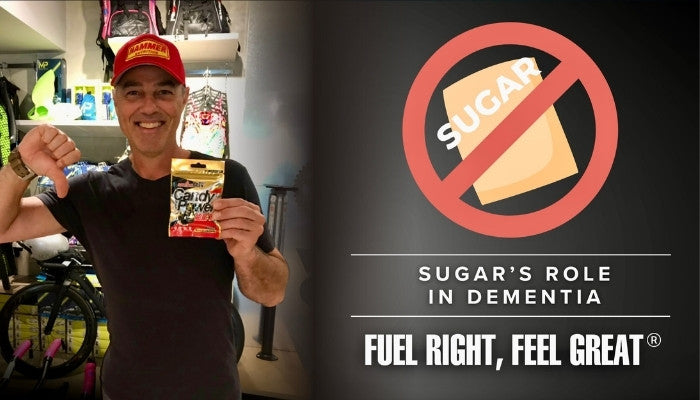Make these changes now for better health and athletic performance in 2017
By Brian Frank
The new year is an ideal time to refocus on health and fitness, and to set goals that will help you enjoy improved athletic performance. For your consideration, here are some of my favorite resolutions. Following them will have profound positive effects:

1. Drink more water. If you are not habitually drinking 1/2 ounce of fresh water per pound of bodyweight daily (60-90 ounces for most of you), you are living in a state of constant dehydration. This is not conducive to optimal health or athletic performance. Chronic dehydration strains your organs and increases joint stiffness, risk of injury, and a whole host of additional problems. To remedy this, increase your daily fluid intake by 12 ounces per week until you reach your target. Start each day by drinking a tall glass of water upon rising; consume water gradually throughout the day, ceasing intake 1-2 hours before bed.
2. Eat less sugar. Americans reportedly eat more than 150 pounds of sugar per year on average, and athletes who consume sugary products in training can easily double this number. Yet sugar is a leading contributor to all of the epidemic diseases we face as a nation. To avoid the serious health consequences of excess sugar, aim for a more reasonable intake of 20 pounds per year. Don't be hoodwinked into thinking that it's OK to consume sugar because you are an athlete. No one gets a free pass. Avoid sugar-laden beverages and check labels for sugar content. Anything from a package or can should contain less than 20% of total carbohydrate calories from sugar, including and especially sports products.
3. Eat less salt. Salt is another "white devil" in the pantry. Americans consume 8,000-12,000 mg of salt per day on average, depending on which source you check. And this number can be even higher for athletes who use high sodium drinks and high sodium electrolyte supplements. For optimal health and performance, limit your salt intake to no more than 2,500/3,000 mg. per day. High sodium diets are directly linked to high blood pressure and all forms of heart disease, and they play a big role in a host of other maladies. If you sweat profusely and/or develop salt stains on your clothing and skin, you're consuming too much sodium. By reducing the sodium in your diet you will improve your health and vastly improve your heat tolerance while exercising, guaranteed.
4. Eliminate artificial ingredients. Artificial sweeteners, colors, and flavors are common in foods and sports products even though they are toxic. No one can argue that point. Proponents simply claim that the amounts are so low that they won't really harm you. Not true. Over time, the cumulative effects are a health hazard, pure and simple. Read labels and avoid products that contain any artificial ingredients.
5. Take vitamins. If you aren't currently taking a high quality vitamin/mineral supplement, your body is deficient in key nutrients. Many doctors and nutritionists claim you don't need to take vitamins if you eat a "balanced diet," but where's their proof? Research? There is none. The "balanced diet" is a myth - it does not exist.
Adopting any or all of these resolutions will only improve your health, longevity and athletic performance. HN









